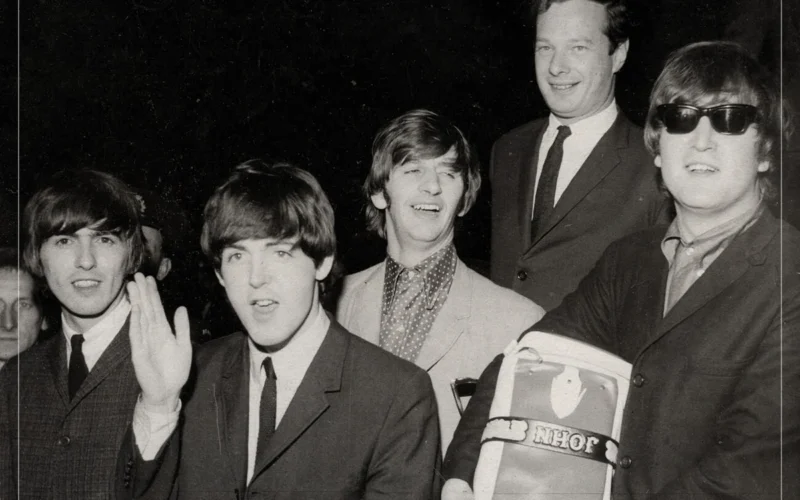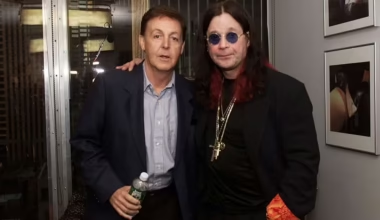“If anyone was the Fifth Beatle, it was Brian,” Paul McCartney once said, and it’s true of The Beatles‘ manager. Who knows how the story of the band might have turned out if it wasn’t for their manager, who met them early, during their Cavern Club days, and basically threw this entire life plan so far just to work with them. From the start to Brian Epstein’s death, their relationship was built on mutual passion, trust and belief. What it often was, however, was good business.
But Epstein warned them of that at the start. He had absolutely zero experience working with bands. Instead, he’d been working at his family’s shop, heading up the music department and starting to work as a go-between, liaising with record labels to get rare or new releases stocked. He had an interest in music, obviously, but no actual insider experience with it, let alone all that much to do with rock and roll.
There was something about The Beatles, though. After seeing them perform for the rest of the time, he knew he had to have them. “I was immediately struck by their music, their beat and their sense of humour on stage—and, even afterwards, when I met them, I was struck again by their personal charm,” he said, “and it was there that, really, it all started.”
The band didn’t make it easy for him, though. It took months of teasing before they’d even consider seriously hearing him out, and even when they did decide to sign with him, it was a complete leap of faith. The band knew it, Epstein knew it, which is why, famously, the manager never signed their first contract, meaning that at any given moment, they could walk away from him with no legal obligation.
It would be easy to make it out like he was the greatest manager in the world, all because he took the four lads and was there when they became the greatest band in the world. But he would never allow that to happen as he claimed, “I have no musical knowledge, nor do I know very much about show business or the record business. The Beatles are famous because they are good. It was not my managerial cunning.”

Obviously, that doesn’t quite do him justice. Epstein was the man who got them through the door at EMI, knew when to take them to America and protected the band’s wants and needs when the suits at the label would have preferred them to go a different way. More so than that, he was their closest confidant and a person who had been there since the start. As McCartney said, he was truly part of the band.
But was he a great manager from a business standpoint? No, not at all, given the huge sums of money the band missed out on.
“Brian didn’t get very good deals on anything,” George Harrison said later on, adding, “For years, EMI were giving us one old penny between us for every single and two shillings for every album.” In those early days, all the maths was messed up. Epstein took 25% of their earnings, which is a huge chunk, but the band already were getting little to nothing as the deal the manager struck with the label was weak, especially for a band swiftly on the rise.
The Beatles earned just one penny for every record sold. But that had to be split between them, meaning they each only got a single farthing. Singles were even worse as they sold for about six shillings and threepence in those days, and the band only got a royalty rate of around 0.35% each, which is a tiny slice of very little to start with.
It got even worse. When the band hit it big with ‘Please Please Me’, Epstein thought he was being smart by starting Northern Songs, a publishing company in connection with more seasoned music publishers Dick James and Charles Silver, to control the copyright. But again, the maths was all wrong. James and Silver ended up owning 51% of the company, while Epstein had 9% and Lennon and McCartney shared the rest.
Obviously, that meant that when the manager died, suddenly the band had a minority interest in their own work, leading to a situation where, in 1969, James and Silver sold their shares, and the band were denied the rights to their own music.
It keeps getting worse. Merchandise was the major money loss as countless companies pitched ideas to Epstein and the band, suggesting different swag they could sell to fans. But the manager turned it all down, instead staying loyal to a prior, weaker deal he’d made that gave the group only a 10% cut of all merchandising rights, and, in the end, losing the band a suspected $100million.
The band bled money. They had a manager who loved and supported them, but they bled money, missing out on huge paydays that perhaps would have kept them far from the band-breaking arms of Allen Klein in the end.






